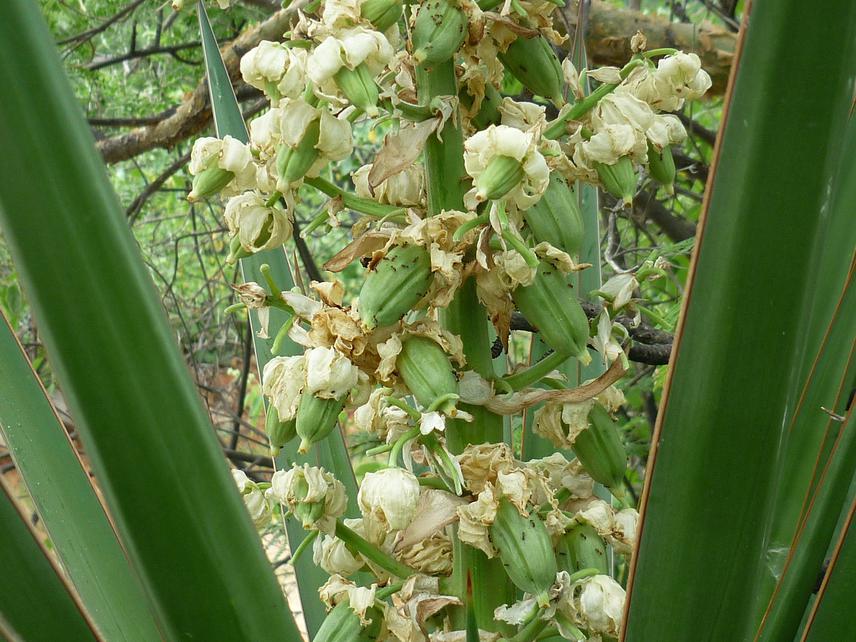Maria Clara Arteaga Uribe
This project will generate critical information about connectivity and genetic diversity of endemic species of Yucca and Yucca-moth occurring along arid ecosystem in Baja California Peninsula, Mexico.

Yucca valida, Y. capensis, and the Yucca-moth Tegeticula baja, are endemic elements of arid ecosystems of the Baja California peninsula in Mexico. Yucca reproduction is apparently completely dependent on pollination by moths that also reproduce solely by laying eggs in Yucca flowers. The close interaction between these species results from a long coevolution (Baker 1986). These endemic species are at risk from extensive land use change currently occurring on the peninsula due to agriculture, cattle ranching, and tourism. Also, some populations have been affected by fire; and Yucca trees have long been a source of phytochemicals and fibers with therapeutic and industrial uses (Patel 2012). Although they are important species in the ecosystem, there is a lack of information on ecological and conservation status. Knowledge of diversity, genetic structure and connectivity of endemic Yucca and Yucca-moths across their complete distribution range will allow us to estimate health of populations based on genetic features.
The first stage of the work will consist of sample collection in the field along the distribution range of each species. In each sample location, we will collect leaf tissue from plants, fruits from trees, and soil samples. Fruits will be keep at ambient temperature and will be monitored daily for emergence of moth larvae and after, as adult, which will be taxonomically identified. Soil samples will be subject to granulometric and chemical analyzes. Climatic data from sampled localities will be extracted from a widely-accepted database such as WorldClim. In the laboratory, whole genomic DNA of plants and moths will be extracted and nuclear and cytoplasmic molecular markers previously described for Yucca and Tegeticula, will be amplified. We will estimate diversity and genetic structure for each species, and explore the influence of climatic variables, soil types, and land-use features over genetic variation and connectivity of populations. We will do comparative analysis of phylogeographic structure between the Yucca and yucca-moth species to provide insight into the history of this mutualism on the peninsula.
The information generated in this project will be used to propose a conservation unit network that allows preserving the genetic connectivity of the populations. Also, we will identify regions with high conservation priorities for these species, using a hotspot map of genetic diversity. This information allows us to understand the current conservation status of endemic Yucca and Yucca-moth of the Baja California peninsula.